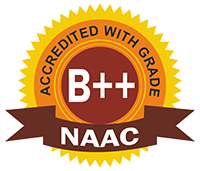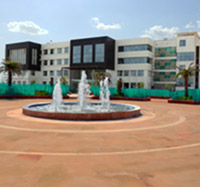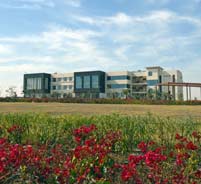Latest News:
- ABOUT RNBGU
- ADMISSIONS
- Schools
- ACADEMICS
- Strategic Plan and Deployment Documents
- Faculties and Schools
- Curriculum Design and Policy
- Syllabus
- Programme Outcomes
- Course Outcomes
- Examination and Evaluation
- Academic Calendar 2024-2025
- Board of Studies
- Academic Council
- Faculty Members
- Policies
- Committees
- ICT-Enabled Facilities
- Sanctioned Teaching Post
- MOOC Courses
- Doctoral Faculty Detail
- Indian Knowledge System (IKS)
- Gender Cell
- Teaching Learning Pedagogy
- NEP 2020 Implementation
- Teaching Outcome (Attainment)
- PROGRAMS
- Under Graduate Programs
- B.A. (Bachelor of Arts)
- B.Com. - 2025-26
- B.Com . (Hons) - 2025-26
- BBA (Marketing) - 2025-26
- BBA (Finance) - 2025-26
- BBA (Digital & Social Media Marketing) - 2025-26
- BBA (Human Resource Management) - 2025-26
- BBA (Foreign Trade) - 2025-26
- BBA (Bachelor of Business Administration) - 2025-26
- B.Tech. (Computer Science And Engineering)
- B.Tech. (CSE) Spl In Cyber Security & Forensics
- B.Tech. (CSE) Spl In Data Science & Analytics
- B.Tech. (CSE) Spl In AI & Machine Learning
- B.Sc. (Bachelor Of Science) - 2025-26
- B.Sc. (Biotechnology) - 2025-26
- B.Sc. (Hons) Agriculture
- BBA + LL.B. 2025-26
- B.A. + LL.B. 2025-26
- BCA (Bachelor of Computer Application)
- BCA-MCA Dual Degree - 2025-26
- LL.B. 2025-26
- Post Graduate Programs
- M.A. (English) - 2025-26
- M.A. (Economics) - 2025-26
- M.A. (Political Science) - 2025-26
- M.A. (History) - 2025-26
- M.A. (Public Administration) - 2025-26
- MBA - 2025-26
- MBA (Marketing) - 2025-26
- MBA (Finance) - 2025-26
- MBA (Digital Marketing & E-Business) - 2025-26
- MBA (Family Business & Entrepreneurship) - 2025-26
- M.Sc. (Biotechnology) - 2025-26
- M.Sc (Agronomy) - 2025-26
- M.Sc (Genetics & Plant Breeding) - 2025-26
- LL.M 2025-26
- MCA (Master of Computer Applications) - 2025-26
- Doctoral Programs
- Under Graduate Programs
- INFRASTRUCTURE
- Research & Incubation
- Library
- ERP Login
- NIRF
- Placements
- Campus Life
- Media
- Blog
- Career
- Contact Us
- Student Reviews
- NAAC
- Anti-Ragging
News

Three Day Symposium On New Approaches To TB Drug Discovery
May 27, 2021
About the Symposium:
- Tuberculosis (TB) continues to be one of the most serious infectious diseases on Earth accounting for 1 7 million deaths in 2019. Approximately one quarter of the World’s population is infected with the pathogen Mycobacterium tuberculosis in latent form TB is of enhanced concern when combined with other diseases, such as HIV and Covid 19. A further concern is the rapid spread of multi drug resistant and extensively drug resistance, gradually rendering the standard drugs ineffective and requiring the development of new drugs The WHO End TB Strategy targets the year 2030 as the end of the TB epidemic Given the current trends, the objective is predicted to fall short as underlined by the Stop TB Partnership saying that "The Clock is Ticking"
- The Symposium New approaches to TB Drug discovery will include presentations from speakers from around the world who have made significant advances in TB research. The goal of this virtual event is to present novel concepts and to provide a platform for vibrant and open discussions between senior scientists, postdoctoral fellows and students alike.
Importance of Symposium for the students:
By the end of this session, participants will be able to…
- Understand data formats in various biological databases of TB
- Handling Genomics data
- Good Understanding of bioinformatics tools, databases, Microarray technology and data analysis, Next Generation sequencing workflow and platform.
- Will support in research work
Resource Persons
- Dr Wassihun Wedajo Aragaw
- Dr Courtney Aldrich
- Dr Bree Aldridge
- Dr Kamel Djaout
- Dr Sabine Ehrt
- Dr Dhiraj Kumar
- Dr Ulrich Schaible Borstel
- Dr Digby Warner
- Dr Adrie J. C. Steyn
- Dr Bei Shi Lee
Course Contents
- Adapt or die: targeting mutagenesis in Mycobacterium tuberculosis
- Host innate immune mechanisms as targets for host directed therapy against tuberculosis
- Engineering multidrug therapies for tuberculosis
- Genome wide titration of essential gene expression reveals diverse vulnerabilities of Mycobacterium tuberculosis
- Disarming Mycobacterium tuberculosis antibiotic tolerance and resistance
- Host directed therapy and nanomedicine approaches for tuberculosis treatment
- CinA mediates multidrug tolerance in Mycobacterium tuberculosis
- Potent and selective TB DHFR inhibitor by bio-augmentation
- Siderophore secretion as a drug target of Mycobacterium tuberculosis
- Design and Synthesis of Novel Rifabutin Analogs against Mycobacterium abscessus
- Targeting mycobacterial adaptive translation as anti-virulence strategies
Session Details
The Session had started on 25th May, 2021 at 04:30 PM at Online Platform of Zoom. 03 student of B.Sc. Biotechnology V has been selected for attend this program.
Date- 25.05.2021
Adapt or die: targeting mutagenesis in Mycobacterium tuberculosis
Digby Warner, University of Cape Town, South Africa
New approaches are urgently needed for tuberculosis (currently the leading cause of mortality owing to a single infectious agent and source of approximately one third of all antimicrobial resistant (deaths globally We have investigated a DNA repair system implicated in drug resistance and host adaptation in Mycobacterium tuberculosis as potential target of an “anti-evolution” drug development strategy Our results support the role of this “mycobacterial mutasome in mutagenic DNA repair, reinforcing its attractiveness as target for adjunctive therapies designed to protect anti TB antibiotics against emergent drug resistance
Host innate immune mechanisms as targets for host directed therapy against tuberculosis
Dhiraj Kumar, International Centre for Genetic Engineering and Biotechnology, India
The emergence of anti-mycobacterial resistance in microbes of all hues is a serious concern, particularly so for Mycobacterium tuberculosis considering the challenges with the treatment and socio economic considerations Host directed approaches have emerged as a rationale strategy to evolve a sustainable action plan against drug resistance Molecules associated with several host physiological processes like autophagy, apoptosis, signaling, gene expression, alternative splicing, trafficking, diversity of cellular niches etc were identified in the past, which helps the bacteria, survive within the host We will discuss how such diverse mechanisms for host perturbations provide opportunities for a multi-pronged host directed approach against tuberculosis
Engineering multidrug therapies for tuberculosis
Bree Aldridge, Tufts University School of Medicine, Boston, USA
Treatment of TB requires multidrug regimens to ensure the killing of a heterogeneous bacterial population present in different lesion types Design of more effective, treatment shortening therapies should realize the vast drug combination space's potential early in development. We have developed a pipeline based on systematic, efficient in vitro measurement of the drug combination space to predict improvement over the standard of care for treatment outcomes in pre-clinical animal models Our analysis indicates that combination in vitro potency metrics are key heuristics of outcomes in vivo.
Date- 26.05.2021
Host directed therapy and nanomedicine approaches for tuberculosis treatment
Ulrich Schaible, Borstel Research Center, Leibniz Center for Medicine and Biosciences, Germany
Active tuberculosis (is characterized by uncontrolled Mycobacterium tuberculosis Mtb growth and exacerbated immunopathology characterized by polymorphonuclear neutrophil ( influx leading to granuloma necrosis and Mtb transmission PMN fail to kill Mtb and succumb to necrotic cell death, which promotes Mtb growth upon uptake by macrophages Inhibition of myeloperoxidase ( can interrupt this vicious cycle and paves the way for MO to eliminate Mtb Thus, PMN effectors are putative HDT targets to make granulomas better accessible to therapeutics, which could be further improved by novel nanocarrier mediated targeted antibiotic delivery
CinA mediates multidrug tolerance in Mycobacterium tuberculosis
Sabine Ehrt, Weill Cornell Medical College, New York, USA
The ability of Mycobacterium tuberculosis Mtb to resist and tolerate antibiotics complicates the development of improved tuberculosis chemotherapies We identified the Mtb protein CinA as major determinant of drug tolerance and as a potential target to shorten TB chemotherapy By reducing the fraction of drug tolerant persisters genetic inactivation of cinA accelerated killing of Mtb by four antibiotics in clinical use isoniazid, ethionamide, delamanid and pretomanid Mtb D cinA was killed rapidly in conditions known to impede the efficacy of isoniazid, such as during nutrient starvation, in activated macrophages and during chronic mouse infection Deletion of CinA also increased in vivo killing of Mtb by BPaL a combination of pretomanid bedaquiline and linezolid that is used to treat highly drug resistant tuberculosis Genetic and drug metabolism studies suggest that CinA mediates drug tolerance via cleavage of NAD drug adducts
Potent and selective TB DHFR inhibitor by bio augmentation
Wassihun Wedajo Aragaw, Center for Discovery and Innovation, Hackensack Meridian Health, Nutley, New Jersey, USA
Bacterial metabolism can cause intrinsic drug resistance but can also convert inactive parent drugs to bioactive derivatives, as is the case for several antimycobacterial prodrugs Here, we discuss that intra bacterial metabolism of a new Mycobacterium tuberculosis dihydrofolate reductase inhibitor with moderate affinity for its target boosts it’s on target activity by two orders of magnitude This is the first ‘prodrug like’ antimycobacterial that possesses baseline activity in the absence of intracellular bio activation By elucidating the metabolic enhancement mechanism, we provide the basis for the rational optimization of a novel class of dihydrofolate reductase inhibitors and uncovered a new antibacterial drug discovery concept
OXPHOS targeting compounds and reprogramming of Mycobacterium tuberculosis bioenergetics and central metabolism
Adrie J. C. Steyn, Africa Health Research Institute, Durban , South Africa
Previously, we have shown that bedaquiline (mediated inhibition of ATP production reprograms Mtb central metabolism to induce a metabolically vulnerable state, demonstrating that BDQ induced death is not due solely to ATP depletion, but also due to changes in metabolism Recent findings in our laboratory have shown that this metabolic response following drug exposure is unique for each electron transport chain complex, despite the effect on the oxygen consumption rate being conserved These findings reveal previously unrecognized mechanisms whereby M tuberculosis undergoes extraordinary downstream rewiring of central carbon metabolism following inhibition of each ETC complex
A small molecule inhibitor of the cytochrome bd oxidase for tuberculosis
Bei Shi Lee, Nanyang Technological University, Singapore
In recent years, the Mycobacterium tuberculosis cytochrome bcc aa 3 has been identified as the binding target of various antimycobacterial small molecules, including Telacebec (Q 203 a drug candidate efficacious in a phase 2 a clinical trial However, the bactericidal potency of this inhibitor class is limited by the presence of the cytochrome bd oxidase Cyt bd We ascertained the synergistic lethal relationship between the two terminal oxidases in M tuberculosis validated the benefit of Q 203 in other pathogenic mycobacteria, and sought to identify Cyt bd inhibitors In this talk, I will discuss the discovery of a Cyt bd inhibitor and its value in forming efficacious drug combinations against M tuberculosis
Understanding structure and regulation of mycobacterial F ATP synthase paves the way for new anti TB compounds
Wuan Geok Saw, Nanyang Technological University, Singapore
Mycobacterial F ATP synthases utilize the electrochemical gradient generated by the electron transport pathway to produce ATP, essential for cell growth and survival The success in treatment of multidrug resistant tuberculosis using the mycobacterial F ATP synthase inhibitor,
Bedaquiline provided evidence that the F ATP synthase is a druggable target By using various tools from microbiology, structural biology, computational biology, and biochemical and biophysical approaches, we identified unique regions of the mycobacterial enzyme not existing in the human host, and thus exerts on target toxicity These unique regions are important for the protein function and/or regulation and formed a platform for structure based drug discovery









